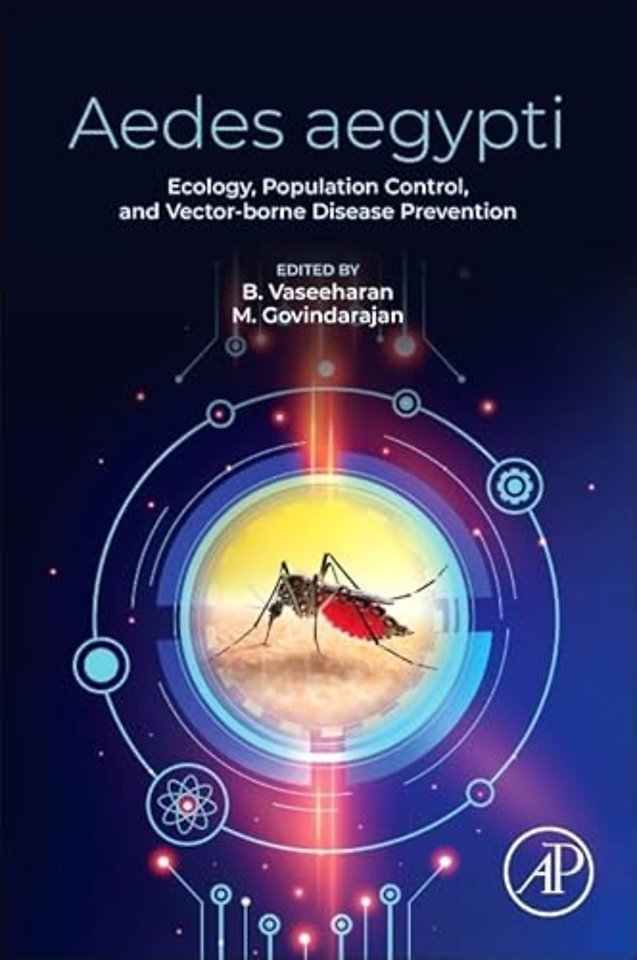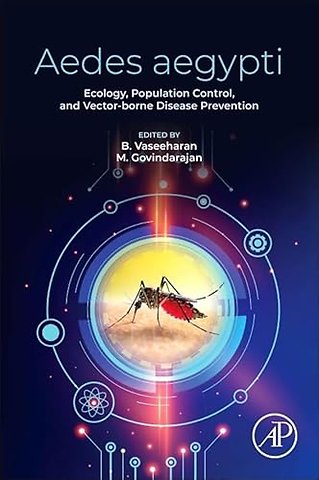Aedes Aegypti
Ecology, Population Control, and Vector-borne Disease Prevention
Samenvatting
Aedes aegypti: Ecology, Population Control, and Vector-borne Disease Prevention offers a comprehensive exploration of the Aedes aegypti mosquito, a notorious vector responsible for transmitting diseases such as dengue, Zika, and yellow fever. From its biology and ecological behavior to its microbiota and role in global health crises, the book delves deeply into the intricacies of this species. It stands as a valuable resource for researchers, public health officials, and anyone interested in understanding the challenges posed by this resilient mosquito and the innovative measures employed to mitigate its impact on human health.
In addition to extensively discussing the mosquito’s role as a vector, the book emphasizes cutting-edge population control strategies, including genetic modifications, microbial interventions, and community-based efforts. It also addresses the global scale of vector-borne diseases, providing actionable insights into prevention methods, surveillance systems, and the urgent need for interdisciplinary collaboration.

